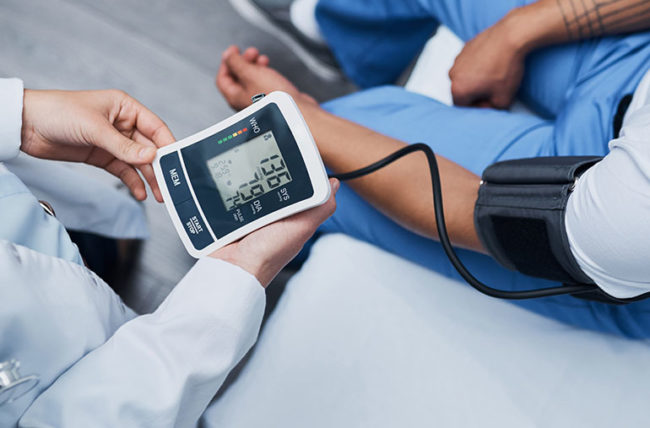- Your cart is empty
- Continue Shopping
HYPERTENSION; CONSEQUENCES, PREVENTION AND TREATMENT.

Hypertension can be defined as the persistent increase in arterial pressure in which the systolic is greater than 140mmhg, and diastolic is greater than 90mmhg measure in a period of time.
It can also be defined as a medical condition in which the blood pressure in the arteries is persistently elevated.
Blood pressure is determined both by the amount of blood your heart pumps and the amount of resistance to blood flow in your arteries. The more blood your heart pumps and the narrower your arteries, the higher your blood pressure.
Usually, hypertension is defined as blood pressure above 140/90 and is considered severe if the pressure is above 180/120.
SYMPTOMS
Most people with high blood pressure have no signs or symptoms, even if blood pressure readings reach dangerously high levels.
High blood pressure often has no specific symptoms, but few people with high blood pressure may experience the following.
Severe headache
Chest pain
Difficulty in breathing
Irregular heartbeat
Fatigue
Dizziness
Insomnia
TYPES OF HYPERTENSION
There are two types of high blood pressure.
1) Primary (Essential Hypertension)
2) Secondary (Essential) Hypertension
Primary (essential) hypertension
For most adults, there’s no identifiable cause of high blood pressure. This type of high blood pressure, called primary (essential) hypertension, tends to develop gradually over many years.
Secondary hypertension
Some people have high blood pressure caused by an underlying condition. This type of high blood pressure, called secondary hypertension, tends to appear suddenly and cause higher blood pressure than does primary hypertension. Various conditions and medications can lead to secondary hypertension, including:
A) Obstructive sleep apnea
B) Kidney problems
C) Adrenal gland tumours
D) Thyroid problems
E) Certain defects you’re born with (congenital) in blood vessels
F) Certain medications, such as birth control pills, over-the-counter pain relievers and some prescription drugs
G) Illegal drugs, such as cocaine and amphetamines
RISK FACTORS
Too much salt (sodium) in your diet.
Drinking too much alcohol.
Stress.
Certain chronic conditions.
Age.
Using tobacco.
High-fat diet
Too little potassium in your diet.
CONSEQUENCES AND COMPLICATIONS
NOTE THAT HYPERTENSION IS A SILENT KILLER:
Failure to take action NOW!! And get a lasting solution to your high blood pressure attracts the following CONSEQUENCES.
Enlargement of the heart
Vascular dementia
Fatal heart attack or cardiac arrest
Kidney failure
Peripheral arterial disease
Impotence
Memory loss
Loss of speech
Stroke
PREVENTION OF HYPERTENSION
Eating a healthy diet
Getting regular exercise
Being at a healthy weight
Avoid smoking
Avoid alcohol
Manage stress and have 6-8 hours of sleep daily
TREATMENT OF HYPERTENSION USING FOHOW MEDICATIONS.
Note that fohow medications are not supplements, they are traditional Chinese medicine, and they can be used for medical treatments.
The following medications help in the treatment of hypertension
Sanqing oral liquid
Blood cleanser
Garlic soft gel capsules
Danshen tablet
Fohow oral liquid.
